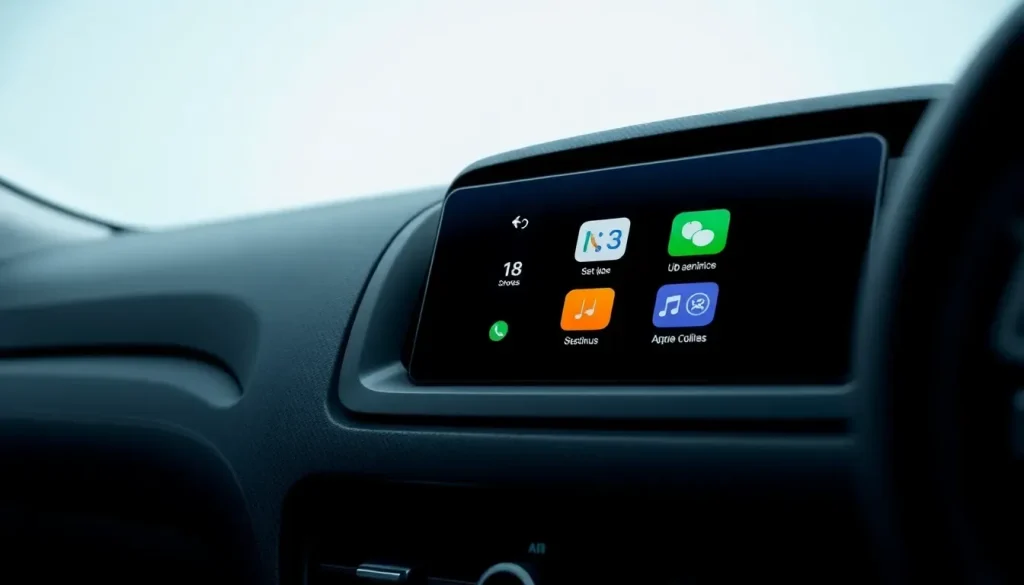Ford undecided on new Apple CarPlay Ultra but open to adoption

The introduction of the new CarPlay Ultra has not been as brisk as Apple may have hoped, with a noticeable lack of enthusiasm from major automotive manufacturers. Among these, Ford has been particularly vocal about its hesitations regarding the integration of this technology into its vehicles. Understanding the reasons behind this reluctance can shed light on the complexities of modern automotive technology and the interplay between car manufacturers and tech giants.
What is Apple CarPlay Ultra?
Apple CarPlay Ultra represents an evolution of Apple's in-car interface, designed to offer a more integrated and feature-rich user experience. Unlike its predecessor, CarPlay Ultra is built to allow deeper integration with the vehicle's hardware and software.
This latest version aims to provide functionalities such as:
- Enhanced app support
- Improved voice control features
- Seamless access to vehicle functions
- Customizable user interfaces
Despite its promising features, the roll-out has been slower than anticipated, with manufacturers exhibiting reluctance to adopt the new platform.
Why is Ford hesitant to adopt Apple CarPlay Ultra?
During a recent appearance on the Decoder podcast by The Verge, Ford's CEO Jim Farley openly discussed the challenges associated with adopting Apple CarPlay Ultra. He acknowledged that the current execution of the platform does not align with Ford's objectives or standards.
Farley emphasized that Ford is still committed to maintaining a relationship with Apple. He stated, "We don’t like the current execution of Ultra, but we are very committed to Apple." This candor reflects the nuanced relationship between tech companies and traditional automakers.
Concerns regarding control and integration
One of the core concerns for Ford—and likely for other automakers—is the level of control that Apple seeks over vehicle functionalities through CarPlay Ultra. Farley stated that the potential for conflict lies in whether Apple will allow manufacturers to maintain control over their vehicles' critical systems.
Key points of contention include:
- How much of the vehicle's functionality will be accessible via CarPlay?
- Will Apple allow simultaneous operation with other platforms, such as Android Automotive?
- What level of control will Apple exert over vehicle safety and performance features?
Concerns like these have led to a broader apprehension within the automotive industry regarding Apple’s ambitions.
Ford is not alone in its apprehension about adopting Apple CarPlay Ultra. Reports from major automotive news sources have indicated that several manufacturers, including Audi, Mercedes-Benz, Renault, and Volvo, are similarly hesitant. A report from the Financial Times highlighted that many brands believe Apple may be overstepping its boundaries by trying to control vehicle functions through CarPlay Ultra.
Renault, in particular, issued a significant warning to Apple: "Don’t try to invade our systems," underscoring the frustration that many manufacturers feel regarding the potential for Apple to dominate critical vehicle functionalities.
Current status of Apple CarPlay Ultra in the market
Currently, Apple CarPlay Ultra has debuted in vehicles from Aston Martin and is expected to roll out in Porsche models as well. However, the industrial enthusiasm surrounding its launch has significantly cooled compared to the excitement generated when it was first announced back in 2022.
While some high-end automakers are willing to experiment with the new technology, many others remain cautious, evaluating the long-term implications of integrating Apple’s ecosystem within their vehicles.
Future implications for Apple and automakers
The future of Apple CarPlay Ultra will likely depend on the decisions made by Apple regarding how much control it intends to retain over vehicle functionalities. The interplay of technology and automotive manufacturing raises important questions about consumer experience, safety, and manufacturer autonomy.
As the automotive landscape evolves, the resolution of these conflicts may shape the direction of in-car technology for years to come. Both automakers and tech companies will need to find a balance that serves consumer interests while maintaining operational autonomy.
As consumers increasingly demand more connectivity and digital services within their vehicles, the pressure on manufacturers to adapt to these technologies will only intensify. The forthcoming decisions from Apple and its automotive partners will profoundly impact the future of in-car technology.
For those curious about the evolving landscape of automotive technology, you may find this video insightful:
Ultimately, the relationship between tech giants like Apple and traditional car manufacturers is still in its infancy, and how this dynamic evolves could redefine the automotive experience in the coming years.




Leave a Reply